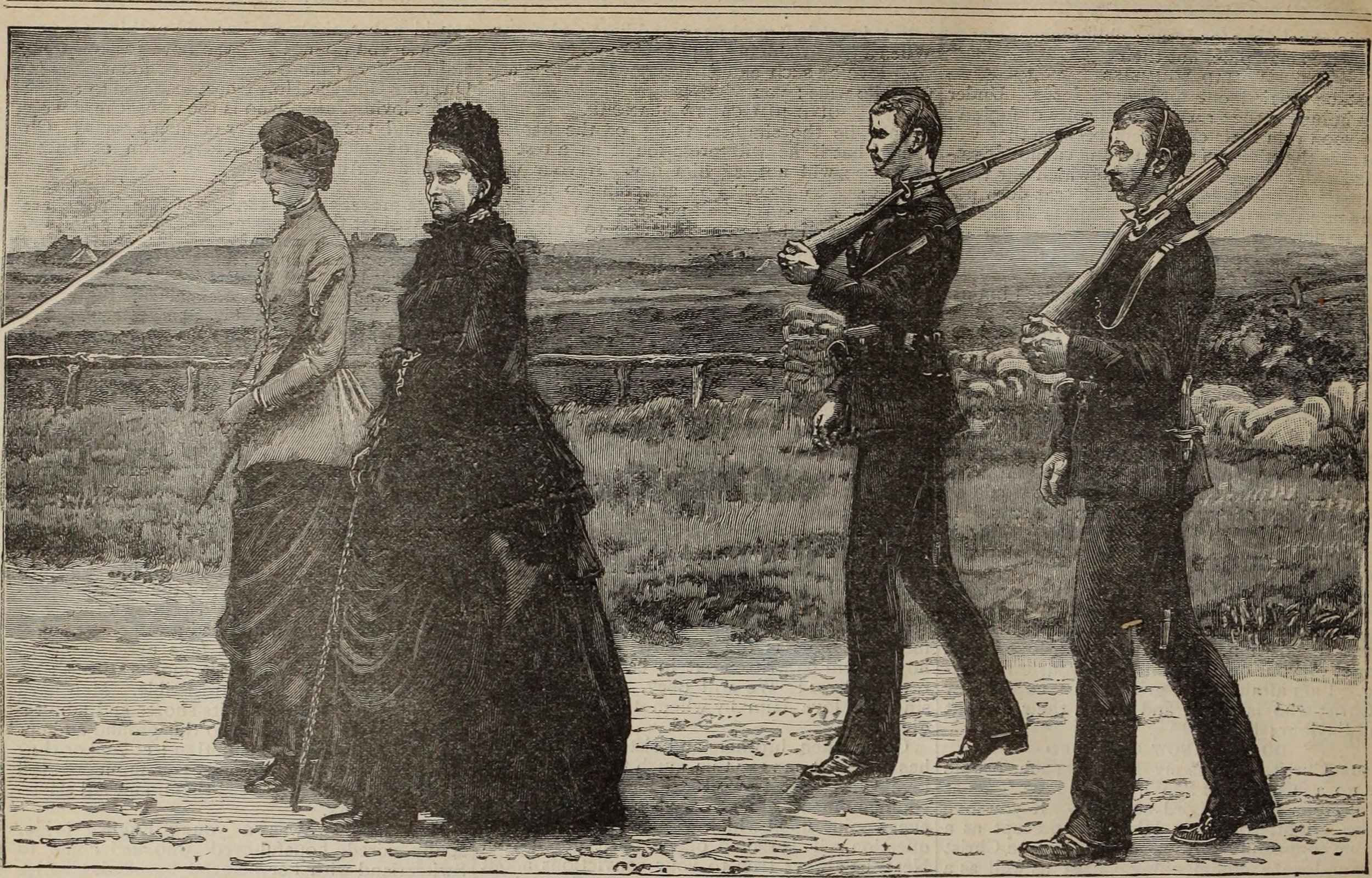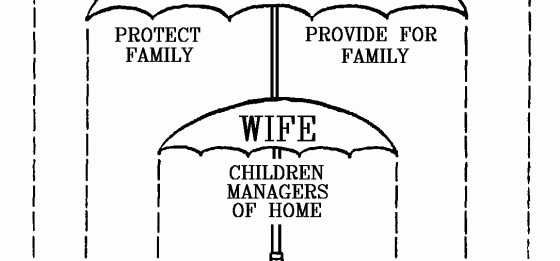Summary
Part 3 in a series on Christianity and gender. Nate and Tim discuss two more key passages related to gender, trying to understand why Paul grouped husbands & wives, children & fathers, and slaves & masters. (Ephesians 5:22-6:9, Colossians 3:18-4:1) What do wives, children and slaves have in common? And what does Paul say to them? And how does he address husbands, fathers and slave masters? Listen to see how Paul’s theology of power makes surprising sense of it all and shows how these passages mean the exact opposite of what many claim they mean.
Transcription
Nate: Alright, welcome back to Almost Heretical. This is part three of a series that we’re doing on gender and Paul and gender roles and all that stuff and talking through that. So if you haven’t listened through the first two, I recommend going back and doing that. And what we’re doing in each of these episodes is looking at one passage and kind of going through that and talking about the case that’s usually made to support hierarchy and gender roles and all that kind of stuff. And we’re seeing, is there something else there? Is Paul actually saying that, is he saying something different? And kind of putting a magnifying glass on these verses. Yeah, it’s been super fun, so go check out the other ones. If you have any questions at all, if it triggers any thoughts or stories from experiences you’ve had in church or just ones you’ve heard, or any push back, any thoughts, any questions, anything, please email us contact@almostheretical.com. We got a few more this last week and it’s just really fun to read those and incorporate them into the show. And if we get enough questions and that sort of thing, we will probably do a question and response show, so send those in and we’ll get that planned. Alright, Tim, what verse are we looking at today?
Tim: Okay, this time actually we’re going to look at two passages. One in Ephesians, one in Colossians, because they’re totally parallel to each other. Paul’s basically doing and saying the same thing. But before we do that, I want to back up and connect this episode to the past two episodes. So the first part of the series we started not talking about gender really, but we started talking about power and hierarchy. And what we tried to do is give a really over-truncated summary of Jesus’, Paul’s, Peter’s, the entire New Testament theology as it relates to power, and the role of Christians in relinquishing power over others, and how Paul saw that what that meant was that the church was to be the community where all of these social hierarchies and the ways that roles are established—
Nate: It was basically upside-down.
Tim: Yeah, exactly. Takes the social hierarchy and it flips it on its head. So actually, I’ve wanted to draw a little picture of this where in the world, the way the world works is a pyramid, right? Where everyone is trying to climb the front side of that ladder to get to the top, and what inevitably happens is once you’ve reached the top, there’s some sort of moment of fall where you can’t sustain your kingdom and you collapse and fall down the other side. And what Jesus is doing puts forward this inverted thing where what you’re actually supposed to do is descend to the bottom. Live your life in a race to the bottom of the social hierarchy, and those people who do that will be lifted up and exalted. So what happens is those who are willing to become low status members of society now will be given high status in the kingdom to come. So that’s the idea. But the reason we wanted to share that and start the series with this is I basically keep seeing over and over and over again that the way people think about power functions as a kind of interpretive lens for how we think about gender, and then vice versa. So I think by the time we get to the end of this series, what we’re actually going to see is this is both a series showing how the church has missed it really badly both when it comes to gender and when it comes to power and authority in general in the church. And women tragically have been the people group that have suffered from our error as it relates to power, our theological ignorance and our lack of discipleship when it comes to power and authority. So I guess a way to say it is that the bigger picture issue is an issue with misunderstanding Christ’s way of power, and the way that’s got channeled in some of the worst ways and continues to happen is as that relates to gender and gender roles and the assumption that power is good as it relates to gender.
Nate: Okay, so basically trying to apply, then, this kind of upside-down, work-your-way-to-the-bottom ethic that Paul, Jesus, Peter, the whole New Testament has, but apply that to gender, gender roles, all that kind of stuff.
Tim: Right. So then last episode we looked at 1 Corinthians 11 and the whole conversation around veiling and women’s bodies and head coverings and all that. And we basically tried to walk through a summary of the major interpretive decisions and make a case that what Paul’s clearly, explicitly doing is granting women authority over whether or not they cover their head in the church community. Which effectively meant he was taking that authority from the men in that church community and granting it to the women, in contradiction to the traditional complementarian view. So what I want to do actually is quote a scholar whose name is Tom Schreiner, who’s one of the captains of the complementarian camp. He’s a part of the whole biblical council for manhood and womanhood, part of Desiring God, basically this like coalition of teachers and scholars that think the idea that there is a God-ordained gender difference that is part of the main teaching of the Bible and that it is a gospel issue to preserve the role in society and in the church of men being the authoritative head of women. So I just want to quote so we see what we’re looking at here. And I’ve actually had to take a class with Tom Schreiner, so I got this first hand. But in juxtaposition, where we said what Paul was doing was essentially giving a rebuke to the men in the community to empower the women, Schreiner thinks Paul, “Enforces a cultural practice on the women in the community,” regarding veiling, because, “The differences between the sexes must not be erased but preserved.” And this, “Reflects on the creation order that reflects God’s will that men and women be distinct.” This is all coming from his big Pauline theology, by the way. Paul, Apostle of God’s Glory in Christ. And what you’ll see in complementarian crowds is there’s this hyperfocus on gender distinction, like the difference between men and women, and this is interpreted as one of the key ideas of the Bible that the biblical authors were just so obsessed with getting the point across. It’s one of the key pieces of what it means to be a biblical Christian.
Nate: I realized we’re three episodes into the series and I guess we never officially defined complementarian and egalitarian. But we’re kind of doing that now, and we’ve had some listeners ask us to do that. So this is sort of describing, and Tom Schreiner is sort of a large proponent of, the complementarian viewpoint. And obviously the opposite of that is the egalitarian viewpoint. And we’ll define that, but basically that means everyone’s equal, and complementarian means men are on top, essentially. Alright, keep going.
Tim: Right, so if you remember, the last verse in that passage, 1 Corinthians 11:16, Paul kind of closes his thought. Which again, I think the obviously best interpretation is that Paul is empowering the women in that community in a really subversive revolutionary way. He ends that thought with, “If anyone wants to be contentious about this, we have no other practice, nor do the churches of God.” So it isn’t surprising to me that Schreiner reads this last verse as a warning against contentiousness to the women rather than the men. And he says, “Women must prophesy in a suitable manner so that the headship and priority of men is preserved.”
Nate: Wow.
Tim: “In other words, Paul wants women to prophesy with a head covering or a proper hairstyle because such adornment communicates that women are submissive to male headship.”
Nate: The word priority, that’s what I said, “Wow,” about. That he uses the word priority.
Tim: Totally, yes. “That the priority of men is preserved.”
Nate: Rachel Held Evans always brings up that line, I think she did when she was on our show too, but that Piper has that quote that Christianity has a masculine feel to it. And that’s sort of what that sounded like as well. Which, I see someone maybe interpreting things where they land complementarian or whatever, but then taking it this extra level where it’s like, “God prioritizes,” or it has, “A masculine feel,” that’s the one I don’t understand at all. Anyways, sorry, keep going.
Tim: No, it’s fine. Part of why I’m quoting this here is because we often get accused of caricaturing the other side, people we don’t agree with. This guy is one of the preeminent scholars who’s like the top of the theological food chain in complementarian world. He’s not one of their schmucks, he’s a biblical professor, a theologian who’s published all sorts of stuff, and he’s one of the main guys that complementarians go to for their best arguments. So this is like cream of the crop in complementarian world. And I just want to point out, what he’s saying is that this is a rebuke of the women in the community, and that what Paul is doing is using his authority, which is a good thing in Schreiner’s mind, to rebuke the women. And I think I just want to notice here, before we move on to some new passages, that this is obviously just assuming a perspective that is essentially the dominant male perspective. That of course Paul would be reinforcing male authority; of course Paul would be using and enjoying his own male authority; of course Paul would be undercutting rebellious women. He would never be questioning the men in the society at the hands of the women. It’s just an assumption that has been allowed to be perpetuated for a long, long, long, long time in the church and in scholarship world because the only people who have essentially been invited into that world are men who have this dominant male perspective. So biblical scholarship, translation, and church leadership has basically been dominated by men who have a kind of self-conserving bias that feeds into a perspective and a sort of leaning that will inevitably choose an interpretation that preserves the power and privilege of that male dominance and male privilege. And I just want to say, I can partly say that that is true because I know I have felt that myself. I know what it’s like to feel like I’ve been given power and the keys to the kingdom in a community or in certain circles or whatever, and it feels really good. And if there were a theological argument that I could hang my hat on to know that everywhere I go I’m going to get to remain the top dog in charge, the most powerful person in the room, including—the passages we’re going to look at today are these household codes—if I could choose a theology that was going to make it so that Monique, my wife, would essentially have to bend to my own desires on the basis of some sort of theology of gender roles, there is a very real part of me that wants that to exist. Like I want to hold onto that. It’s honestly, I would say that’s like when Paul uses the language of the flesh and these natural desires. And it’s the Jesus side of me, the Christian spirit in me, I would say, that allows somebody to push back on that. So ironically, when Paul writes this last line, “If anyone wants to be contentious about this, we have no other practice,” I honestly think that people like Tom Schreiner and those in the complementarian camp, especially those men espousing these ideas at the top of the denominations and seminaries and whatnot, have put themselves, ironically, into the exact position of the men that Paul is addressing with that line. Paul did not think that the women who wanted to veil their heads but were being told no by the men in their communities, which was mostly like the situation here, Paul didn’t think the women were going to push back on him about veiling their heads. At least not the lower class women. Maybe if there were a rich woman or two that didn’t want the prostitutes or slaves—
Nate: To be associated with that, yeah.
Tim: Right. But the best interpretation, clearly, is that those in power in that community were going to be those that were resistant and pushed back on Paul’s idea. And I just think the irony is that those like Schreiner that want to say, “Look, Paul’s rebuking women here,” are actually the kind of people who have the kind of authority and are using the kind of authority to keep women out of full equality in the church community that Paul is rebuking in that very same way.
[transitional music]
Nate: Wow. Yeah. Alright, so let’s do it. What passages are we looking at today?
Tim: Okay. Are you going to read these?
Nate: Yeah, give them to me.
Tim: Okay, first one’s a bit long. Ephesians 5:22-6:9.
Nate: Okay, Ephesians 5. I’ll read this one first and then give me the second one. Let’s see, Ephesians 5… 22? I don’t remember the end, so just stop me when I need to end.
Tim: Okay.
22 Wives, submit yourselves to your own husbands as you do to the Lord. For the husband is the head of the wife as Christ is the head of the church, his body, of which he is the Savior. Now as the church submits to Christ, so also wives should submit to their husbands in everything. Husbands, love your wives, just as Christ loved the church and gave himself up for her
Nate: Ooh, the wedding verse.
26 to make her holy, cleansing her by the washing with water through the word, and to present her to himself as a radiant church, without stain or wrinkle or any other blemish, but holy and blameless. In this same way, husbands ought to love their wives as their own bodies. He who loves his wife loves himself. After all, no one ever hated their own body, but they feed and care for the body, just as Christ does the church—for we are members of his body. “For this reason a man will leave his father and mother and be united to his wife, and the two will become one flesh.” This is a profound mystery—but I am talking about Christ and the church. However, each one of you also must love his wife as he loves himself, and the wife must respect her husband. Children, obey your parents in the Lord, for this is right. “Honor your father and mother”— which is the first commandment with a promise—“so that it may go well with you and that you may enjoy long life on the earth.” Fathers, do not exasperate your children; instead, bring them up in the training and instruction of the Lord. Slaves, obey your earthly masters with respect and fear, and with sincerity of heart, just as you would obey Christ. Obey them not only to win their favor when their eye is on you, but as slaves of Christ, doing the will of God from your heart. Serve wholeheartedly, as if you were serving the Lord, not people, because you know that the Lord will reward each one for whatever good they do, whether they are slave or free. And masters, treat your slaves in the same way. Do not threaten them, since you know that he who is both their Master and yours is in heaven, and there is no favoritism with him.
Nate: That’s the end, right?
Tim: Yup. Okay I’ll read the second one. It’s Colossians 3:18-4:1.
18 Wives, submit yourselves to your husbands, as is fitting in the Lord. Husbands, love your wives and do not be harsh with them. Children, obey your parents in everything, for this please the Lord. Fathers, do not embitter your children, or they will become discouraged. Slaves, obey your earthly masters in everything; and do it, not only when their eye is on you and to curry their favor, but with sincerity of heart and reverence for the Lord. Whatever you do, work at it with all your heart, as working for the Lord, not for human masters, since you know that you will receive an inheritance from the Lord as a reward. It is the Lord Christ you are serving. Anyone who does wrong will be repaid for their wrongs, and there is no favoritism. Masters, provide your slaves with what is right and fair, because you know that you also have a Master in heaven.
Tim: Okay, so let’s do the same thing we did last time. Give me your first gut response and maybe any historical baggage related to these passages.
Nate: Ooh. I mean, this feels like everything. Like I said, this is the wedding verse. This is the verse that, every wedding I go to that is a complementarian pastor doing the ceremony and a complementarian marriage that’s about to happen, and my wedding, your wedding, this is the verse that is read. And the idea here is that it’s laying the foundation from the beginning that there’s a hierarchy here, and it’s: God > authority over man > authority over woman. That, honestly when I hear that, I just picture all the weddings I’ve ever been to where that’s laid from the beginning. But then also it’s really interesting, recently in the last few years, the verses about slaves that are included in the Ephesians one. That just, to me, feels like a lot of this that he’s talking about is cultural, again like we talked about last week. That’s some of the way I think about this now, and it diminishes some of the impact that it has for me now, because I know that he’s also talking about the way that slavery should be done the right way as well. I don’t know. Those are just some of the things. I know a lot of terrible stuff has come from these verses. I haven’t necessarily seen terrible things in my life, but I do want to say that early on in marriage, for the first couple years, we really tried hard to live in this hierarchical marriage, and it really just did not work for us. Yeah, I don’t know. Those are just some of my initial thoughts, I guess.
Tim: Yeah, totally. The reason I had us read the extended passages that went beyond just the wife/husband sections was because it’s really important that in both of these passages, both Ephesians and Colossians, that—
Nate: Yeah, they never talk about slaves at weddings, huh? They never go there. They never go that far.
Tim: Yeah! Or we never consider the fact that the wife/husband relationship is set in parallel to the slave/master relationship.
Nate: Exactly.
Tim: So today at least, how do you justify—rightly justify—getting rid of slavery as an atrocious evil use of power over other people and then claim that this is God’s ordained plan, and that actually this is Paul instructing husbands to have authority over their wives? So let me back up for a sec. One of my favorite points in Cynthia Long Westfall’s book, her broader exegetical approach, is pointing out what I think I had sort of felt intrinsically but hadn’t been able to articulate at this level. It’s that Paul throughout all of his theology intentionally puts men and women, slaves and masters, and then the Jew and Gentile in these analogous pairs. And the key verse is in Galatians 3:28 where he says, “There is neither Jew nor Gentile, slave nor free, nor is there male and female, for you are all one in Christ Jesus.” And many on the complementarian side are so focused on thinking that the Christian idea is that men and women are supposed to remember they’re different—the key is difference—that they interpret this as, “No, no, no, remember, there still is difference between men and women.” The point of this passage has nothing to do with difference. The point of this passage is about power and status, and what Paul is saying is there is no longer any difference in status between Jew and Gentile—insiders and outsiders—slaves or their masters, and men and women, for you are all one in Christ. And the very next verse proves this, because he says, “If you belong to Christ, you are Abraham’s seed and heirs according to the promise.” Heirs, that means corulers. Rulers of the kingdom. So you are no longer a slave but God’s child, and since you are His child, God has made you also an heir. The whole point of this idea, which then plays out everywhere in Paul’s theology, is that everyone gets equal rule in Christ’s kingdom, that the whole nature of the gospel is that the least of these, those who are least in the world, have been blessed in the kingdom and are given great power. So the greatest will be the least, all that we’ve already talked about. So what Paul is doing is, he’s not just picking out, “Oh, we’ve got to talk about gender because gender roles are important.” He’s picking out the primary relationships where a significant power differential exists and he’s going through and he’s applying his Christian ethic of relinquishing power to the various people in those relationships of power differential.
Nate: So he’s just looking at these and saying, “We have to do this a different way,” essentially. Which is why he doesn’t look at slavery and say, “No more slavery anymore.” Because that’s not the point, that’s not what he’s trying to do here. That wouldn’t even be possible or attainable necessarily in his head because that’s so ingrained in their world. He’s saying, “Here’s how we’re going to do this with the Christian ethic if we’re going to have this.” Or something like that?
Tim: Right. Yeah, he’s not trying to take down the Roman empire, although this is a much longer conversation. Paul didn’t live in a democracy. No one in their day could imagine taking down the Roman empire, right? So we can’t just take this governmental ethic or politic and apply it to our day as westerners. But what he’s doing is saying in Christ these things have all been nullified. And he’s saying the reason we’re going to talk about these relationships, the slave/master relationship, the male/female relationship, is because these are the very relationships that, out there in the culture that we are all living in, there is the clearest and largest differential in power granted to the different people in those relationships. The additional one is the parent/child relationship. Parents have a whole lot of authority; children do not. So let me quote Cynthia Long Westfall here. Again, this is an idea that is intrinsic to how I’ve been thinking about power for a while now, but when I saw somebody writing this in a good, well-published book, I literally was pumping my fist in the air. In reference to these two passages she says, “Neither partner is entitled or has priority, because every patron is reduced to functioning like a client.” So we’ll get into this language of patron/client relationship, but what she’s saying is this is a patronage society and every person in society and every relationship in society is construed as one party is the patron or benefactor, the one in power, and the other party is the recipient, who becomes the client who has to reciprocate their obligation back to the patron. So men, free men, heads of households are the patrons. So a good picture is kind of like Abraham or Job in the Old Testament, where they basically have this household that includes their wife, their children, their children’s wives, and then a whole bunch of servants. So there’s this giant household structure. Anyway, she says, “Every patron [in the church] is reduced to functioning like a client.” So every person with power is reduced to functioning like the servant in the relationship. “This is the dynamic within the entire section that deals with the household codes in Ephesians and Colossians. In the pairs of relationship addressed, the wives, children, and slaves are to maintain behavior that is acceptable within the culture, while the directions husbands, parents, and masters are revolutionary. Paul places the responsibility and obligation for sociological transformation in the Christian community upon those who have power, while he reverses the culture’s negative evaluation of those without power, which is consistent with Jesus’s teaching.” So what she’s saying, and I agree with this wholeheartedly, is that what Paul’s doing here is he lists, in both passages he lists three pairs of types of people in society. So wives and husbands, children and parents, slaves and masters. And his basic ethic that he’s applying here is Christian self-sacrificial love for the other, to become servant to all. But wives, children, and slaves: they’re already servants! They are already low on the social hierarchy. So Paul isn’t telling them to buck off the Greco-Roman cultural expectations and seize power for themselves. He’s actually saying, “You’re already in the position that you would be trying to get to if you were in power in the first place, as a Christian.” If you’re already at the bottom of the social hierarchy, you’re actually right where Christians want to be. But then what he does is he says, “Your service there is to the Lord.” This is a form of worship; we talked about this last time. And he dignifies it. So to wives he says, “Submit yourselves to your husbands, as is fitting in the Lord.” Now this is interpreted as saying, “You know, because good biblical Christians do biblical marriage where women are at the bottom and men are at the top!” That’s not at all what he’s saying. He’s saying, “Because you’re a Christian who professes worship and adoration for the Lord of the cosmos who descended to the bottom of the social hierarchy, then you can actually consider your submission to your husband,” which society already demanded that you do because society tells you you’re inferior as a women. Paul’s saying you’re not inferior, you’re equal and have equal status, but this can be your worship. You can actually submit as to the Lord. And he does the same thing even in a longer, more extended version with the slaves. When he says, “Whatever you do, work at it with all your heart, as working for the Lord, not for human masters.” So what he’s saying practically is what it means for people in the positions of low power is to remain there, but to reorient their whole way of life to submit not based on social hierarchy, but to submit based on self-sacrificial love for other people. But then, and this is where we completely miss it, what Westfall is saying and what I think is so important, is that what Paul articulates, and I would say this is everywhere in the New Testament, to the people in positions of power is that they’re not to remain in their position of social status and hierarchy. That they’re actually supposed to abandon that position, give up that authority, and descend to the place of equal to whomever they’re in a position of power over. So in Philemon, he writes to Philemon the slave master and says, “If you don’t treat Onesimus, your slave, like a brother, then you’re actually proving that you’re ineffective in your Christian faith.”
Nate: But we’ve always taken those things to say, “Okay, he’s saying leave slavery there, leave the hierarchy in marriage there, leave the hierarchy in parenting, leave it all there but just do it a better way, do it with love and with compassion where you’re serving the other person,” that kind of thing. And I think what’s been really revolutionary to me in this chat we’ve just had is that that’s because—you said the word democracy—that’s because he didn’t live in a time under the Roman empire when they could imagine changing the system like we can now. So my question to you is, take Paul out of that and put Paul now. Is he just like, “No, we gotta go along with the way things are, but try to love inside of that,” or does he say, “We have a chance to change the system here,” you know what I’m saying?
Tim: Yeah. So let’s think about this in a couple different ways. The first is that the reason we get to this place where, for instance the traditional view has been, “Yeah, men are supposed to love their wives in a kind of servant love, and pastors are servant leaders,” but that always means authority. So, “Pastors, you’re supposed to be a servant, we know that, but it also means you’re the one in charge of the society or in charge of the church community.” And we’ll talk about the elders, deacons, office stuff in a future episode, but the same thing goes with, “Elders, they’re supposed to be the ones that serve over the community, but what it really means is they’re the ones who have most power to make decisions.” And then there’s this push back on the so-called progressive agenda or egalitarian camp or whatever that’s like, “They’re so confused. They think differential in authority means differential in equality.” And I’m like, “Yes, that’s exactly what it means!” That’s what it means to Paul! To Paul, a difference in status or power is what it means for something to be unequal. That is one of the basic, fundamental, philosophical ideas of Christianity, is that to say that one person is going to have power over another is to say that you are not treating one another as siblings, coheirs, or co-servants. You’re perpetuating the very kind of hierarchical role structure that Jesus explicitly forbid. Forbade? That Jesus explicitly—
Nate: Forbode. Just kidding, I don’t know.
Tim: Uh, prohibited. And it’s basically this, I would honestly say, this sleazy way to almost dismiss the cries of victims of this subtle or less-than-subtle and patriarchy by saying, “Hang on, you’re equal! You just can’t do this.” Like, “Oh, women can do ministry, you just can’t be pastors, or can’t teach from the stage, or can’t speak if your husbands not in the room.”
Nate: Right, right. “And we’re serving, and we’re being servants. But we’re going to be at the top and you’re going to be below, and we’re going to essentially tell the church what to do and tell the family what to do. But we’re serving!”
Tim: Yeah, and so again, we’ll get into this some more in a future episode, but the head pastor, the guy who put me out of a job and all hullabaloo at my past church, he changed his position to Pastor of Teaching and Vision. What did that mean? It meant Pastor of Making Decisions. Which means—pastor means servant, not the one with the power to make to decisions. So his title was literally The One-Without-Decisions of Making All of the Decisions. [laughing] So we’ve just skewed all of the roles, all of the whole ideology because, going back to why I was quoting from Schreiner, the default air in western Christianity—and this is one where I can’t just pick on evangelicalism, because is the Catholic church for their entire history, from about the 4th century on—the default air is an assumption of power. That power is good and authority is good. That is the default theology of power. So when we get to these passages, and Schreiner says this explicitly, that if wives are told to submit to their husbands, then what Paul is also implying is husbands are supposed to maintain authority over their wives. That right there is, I would say, the key hermeneutical interpretive reason for why we’re at where we’re at. That is the opposite of what Paul is saying. And that’s Cynthia Westfall’s point, that what Paul is actually saying is the onus of responsibility to act like a Christian in a far more costly way is on those who have power. They’re supposed to give it away over their wives or their children or their slaves. But this move, this idea, that, “Oh, that means Paul’s also saying that husbands should have authority,” it’s the same move that also, by the way, was used to say, “Therefore slavery is okay and good, and it’s okay to have mastery over another human being.” That’s something being read into the text, again that I’m calling an assumed theology of power, that is actually the opposite of what Paul is thinking and doing. So again this gender conversation, I think when we get out the other side, is going to show that that whole assumption about power is wrong and therefore all the related assumptions about men being in power over women are wrong. And the only way, to me, to thoroughly change the way we think about gender and women is to thoroughly think Christianly about power and authority, and vice versa. And so one of the ways I would say you can see that happening in this text is look at the sections with parents and children. In both of them, in Ephesians and in Colossians, I think it’s really interesting that when he says to the children, he says, “Children, obey your parents.” And in Ephesians he quotes the Decalogue where he says, “Honor your father and mother.” But then who does he address?
Nate: Parents.
Tim: No. Fathers. Think about the significance of that. Why, if kids are supposed obey your parents, not just your father, why does Paul only speak to fathers about not being harsh with their kids?
Nate: Because they’re the ones with the authority in the family essentially.
Tim: Exactly. They’re the ones who Paul’s most concerned with because they’re the ones who have the most power.
Nate: In that worldview. Not that he’s saying they’re supposed to have the most power. He’s saying they just do.
Tim: They do. Exactly.
Nate: In the world they’re living in.
Tim: That’s why he needs to address them.
Nate: That’s the distinction. I think that’s everything right there.
Tim: Yeah, so if this was being read as it’s been taught, that what Paul is doing is laying out an organization for how the community is supposed to work. If there’s supposed to be this wife/husband relationship, supposed to be this child/father relationship, there’s supposed to be this slave/master relationship—
Nate: He would just lay it all out and he would agree with the world they’re living in and say, “This is the way it’s supposed to be.” He would just lay it out clearly.
Tim: Right. His lens, and I’m saying it needs to be our lens, is power differentials between human beings in the church. And he’s literally circling. He’s looking at a church community, and here these are sort of broad communities, and he’s circling the predominant places in this culture where a significant power differential will exist. And then he speaks to the person without power and he encourages them and empowers them—not to buck off the shackles and seize their own power—they’re to follow Christ and give up power, even though they already don’t have much. But then he speaks to the other side of that equation, to the one with power. And we don’t have time to get into all the details, but he uses oftentimes feminine language to speak to the men, gives them basically feminine household chores to do in response to their wives, for instance washing their wives. So he assigns feminine titles to the men. He assigns lowly servant terms and functions to those in positions of high power. He uses sibling language to say that, “You’re all on the same level playing field. He uses this other piece that we brush over all the time, pointing to us having one Lord in Christ, or one Master who is God. He constantly does this thing where he points up and says, “Because there is one Lord, there is now a flat, egalitarian, universalized playing field for everyone else. You can’t be the lord of your wife if there is one Lord.” That’s a key piece of what he does throughout all of this. So again, this is one of those things where, we could get into the details of these passages. But if what we think Paul is doing or where we think he’s coming from is this default assumption that authority is good, power is good, there needs to be these hierarchical structures otherwise socialism’s going to destroy the world, and therefore he wants to assert a God-given biblical structure of male/female gender roles in marriage, then we also have to say, “Paul is saying there is a God-given, God-ordained slave/master relationship,” that’s set side by side with wives/husbands. And sadly I almost don’t want to say that because actual people have done that throughout history. But most complementarians today won’t do that. They’re anti-slavery, but they’re pro-spousal submission from wives to husbands. It’s incoherent; it’s inconsistent. But if you start to actually see what Paul’s really thinking about power and how what he’s doing in the church, as Cynthia Long Westfall says, is revolutionary, but that it’s specifically revolutionary to the person in a position of power, and for them to be a Christian means far more social change, far more pragmatic abandonment of what the society told them to be than those in low positions of power, then you start to see why it seems on the surface like Paul’s telling women to submit and husbands to be in charge, and then you start to look more closely and you see that Paul never tells anyone to practice authority over anyone.
Nate: Right. I think that’s huge. That’s the whole piece. Who’s he actually talking to? He’s talking to the one in authority. But we’ve always read it and always understood it, and I see from complementarian camp that he’s talking to the ones—you said it last week, I think, the assumption is women don’t want to cover their heads, but he’s cracking the whip and saying, “No, you have to.” But he’s always talking to the one with the actual authority. And we’re not just—this isn’t just a nice theological debate that we want to sit around with our beers and talk about, “Is is complementarian or egalitarian?” We think this is so important because of the damage we’ve seen it do in the real world. And even recently with the #MeToo movement and the #ChurchToo movement and , , all this stuff that’s going on. And the cover up oftentimes comes right back to a lot of these issues and the gender roles and the hierarchy that we have in the church and the family. So that’s why we’re calling this out, and that’s why we’re pretty strongly calling it out. Because we think this is really, really important. And just to raise our hands and say we’re not holier than anyone out there, we taught this. We practiced this. And we have changed and we have grown from that, and that’s what we’re trying to show through this show as well, to say we’re sorry for the things we taught and we’re sorry for the things we believed and helped other people believe. But we want to move from there and we want to give the Bible back to people who thought they had to move on past the Bible because it didn’t feel like Paul and the Bible were actually in agreement with them. We want to show you that no, there actually is a way to look at this that scholarship now—that’s what we love about Cynthia Long Westfall’s work—scholarship now, maybe some of the best scholarship out there, is showing that maybe Paul was talking about this all along. So that’s what we’re doing on this show, that’s what we’re doing with this series. And we have more to go, so come back next time to hear more, and if you haven’t, go back and listen to the first couple episodes of this series. And we’ve got so much more to do. So if you have any questions or thoughts or comments or anything like that, we’d love to hear from you. contact@almostheretical.com You can go back and listen to all the episodes at almostheretical.com, subscribe wherever you get podcasts, so that you never miss an episode. And we will see you next time.
Tim: I’m going to say one more thing and you can decide whether it fits in this episode or a future one. It’s something I’ve been laying in bed thinking about over and over again since I’ve been getting into this deep dive study. So in that line, “There’s neither Jew nor Gentile, slave nor free, nor is there male or female, for you are all one in Christ Jesus.” Just thinking on church history, the whole New Testament is basically a story on the church’s struggle to come to terms with there being no power differential between Jews and Gentiles. You see Peter being resistant to that idea, and there had to be all these divine breakthroughs to convince Jews that Gentiles could be included fully and put in positions of leadership in the church.
Nate: It’s potentially what Romans is all about.
Tim: Yeah, and then it took till basically 100 years ago for the church to abandon slavery and actually decide theologically as a whole that there was no place for mastery of other people in society, so slaves were finally liberated. And here we are, 2018. Women still have not experienced the liberation that Paul not only was teaching, but Paul was actually enacting in communities in the Greco-Roman world 2,000 years ago. We get called progressive, we’re dubbed liberal, progressive, whatever, and I’m not saying there’s no issues with Paul or we don’t have to wrestle with him, but the fact is, he actually made communities or helped foster communities within the Greco-Roman world where women were considered property of men, that were more empowering and liberating to women than the church has been for the past 1600 years and continues to be today. So there’s these three relationships in analogy. Jew/Gentile: it took 100 years for Gentiles to be fully included, but they were. Slaves and masters: it took 1900 years for slaves to be fully liberated, but now they are. And men and women: we are still here arguing over whether or not women should be fully liberated in the church, and I just say it’s time to finally figure this thing out.
Nate: And it’s going to happen. Be on the right side of history. That’s what I say. Alright, now we’ll see you next time.
Tim: Okay. Peace.











